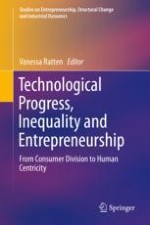2020 | OriginalPaper | Buchkapitel
Transformative Changes and Developments of the Coworking Model: A Narrative Review
verfasst von : Marko Orel, Ondřej Dvouletý
Erschienen in: Technological Progress, Inequality and Entrepreneurship
Aktivieren Sie unsere intelligente Suche, um passende Fachinhalte oder Patente zu finden.
Wählen Sie Textabschnitte aus um mit Künstlicher Intelligenz passenden Patente zu finden. powered by
Markieren Sie Textabschnitte, um KI-gestützt weitere passende Inhalte zu finden. powered by
